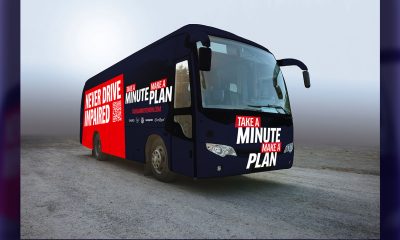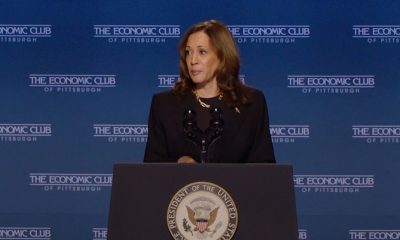Sports
Brady Needs More Time to Digest Deflated Footballs Report

New England Patriots quarterback Tom Brady, left, is interviewed by sportscaster Jim Gray during an event at Salem State University in Salem, Mass., Thursday, May 7, 2015. An NFL investigation has found that New England Patriots employees likely deflated footballs and that quarterback Tom Brady was “at least generally aware” of the rules violations. The 243-page report released Wednesday, May 6, 2015, said league investigators found no evidence that coach Bill Belichick and team management knew of the practice. (AP Photo/Charles Krupa, Pool)
HOWARD ULMAN, AP Sports Writer
SALEM, Mass. (AP) — Tom Brady knows how to buy time when he’s under pressure — on and off the field.
Especially when the star quarterback is in front of a home crowd.
One day after a report from an NFL-hired investigator concluded Brady probably knew that New England Patriots employees had a role in deflating footballs, he said Thursday night he needs more time to process the 243-page report.
“I don’t really have any reaction. It has only been 30 hours. I’ve not had much time to digest it,” Brady told a university crowd that broke into frequent applause. “When I do I will be sure to let you know how I feel about it. And everybody else.”
The 2015 Super Bowl MVP is waiting to find out if the NFL will discipline him with a fine, a suspension or both. New England is scheduled to play its opener against Pittsburgh in the kickoff game of the regular season on Sept. 10.
“There is a process going forward and I am involved in this process,” he said.
He wasn’t shy about saying that the scandal hasn’t detracted from the 28-24 Super Bowl win over Seattle two weeks after the 45-7 victory over Indianapolis in the AFC championship game that was the focus of the investigation.
“Absolutely not,” he said in his first public appearance since the report from Ted Wells, an independent investigator appointed by the NFL, was issued. “We earned everything we got and achieved as a team, and I am proud of that and so are our fans.”
Asked whether public backlash bothers him, Brady said he accepts his role as a public figure and has people who support him and help him get through it.
“As a human you care about what people think. I think also as a public figure you learn not everyone is going to like you,” he said. “Good, bad or indifferent, there are a lot of people who don’t like Tom Brady, and I am OK with that.”
The superstar quarterback spoke at a Q&A session moderated by sportscaster Jim Gray during a previously scheduled, sold-out event at Salem State University.
He arrived by helicopter for the talk on leadership, avoiding a long line of fans outside and media waiting for him to enter. The event was delayed more than 30 minutes to allow fans to enter, including some wearing Brady jerseys. During the wait, the crowd chanted “Brady” and “MVP,” then gave him a standing ovation as he walked in.
When someone shouted, “I love you Tommy,” he responded “love you, too.”
Gray said the session would largely stick to subjects that were planned when they arranged the talk four months ago. But he acknowledged the difficulty in avoiding one of the hottest topics in sports.
“There’s an elephant in the room,” Gray said.
“Where?” Brady responded.
Gray shot back: “You might be the only one in the room who does not see it.”
Gray did not ask Brady directly whether he cheated or about specific issues raised in the report, including text messages and phone conversations that indicated the employees were trading autographed footballs and sneakers for doctoring the balls for Brady.
The NFL requires a range of 12.5-13.5 pounds per square inch. Footballs with less pressure can be easier to grip and catch. Some quarterbacks prefer footballs that have less air, and Brady played a role in a 2006 rewriting of the rules that allowed visiting teams to supply the footballs it would use on offense.
The first four minutes of the hour-long session were devoted to Brady’s reaction to the report. The subject did not come up again.
Brady seemed at ease throughout the event, which included questions about Seattle coach Pete Carroll’s ill-fated call for a pass that was intercepted in the end zone by cornerback Malcom Butler in the final minute of the Super Bowl.
“It was more of a great defensive play than a bad offensive play,” Brady said.
He laughed when asked about a recent online video showing him jumping off a cliff into water in Costa Rica.
“It was kind of a spur-of-the-moment thing,” he said. “I’ll never do it again.”
And he reiterated that a “family commitment” kept him from the recent White House ceremony honoring the champion Patriots.
“Did the team go?” Brady said to laughter. “If we get that opportunity (next year) there’s no doubt I’ll be there.”
Earlier Thursday, his agent, Don Yee, said the NFL was determined to blame Brady for deflated footballs, while the investigation omitted key facts and buried others.
The team didn’t respond to requests from The Associated Press seeking comment about the report from Brady and Patriots coach Bill Belichick. The Patriots didn’t make anyone available on Thursday.
The report didn’t find any evidence that team owner Robert Kraft, Belichick or the coaching staff knew anything about deflating balls. But it found some of Brady’s claims implausible in explaining why balls were underinflated.
___
AP Pro Football Writer Barry Wilner in New York contributed to this report.
___
AP NFL websites: www.pro32.ap.org and www.twitter.com/AP_NFL
Copyright 2015 The Associated Press. All rights reserved. This material may not be published, broadcast, rewritten or redistributed.
Activism
McClymonds High Names School Gym for Star Graduate, Basketball Legend Bill Russell
William “Bill” Felton Russell was born on Feb. 12, 1934, and died on July 31, 2022. He achieved fame as a U.S. professional basketball player who played center for the Boston Celtics of the National Basketball Association (NBA) from 1956 to 1969. He was the centerpiece of the Celtics dynasty that won 11 NBA championships during his 13-year career.
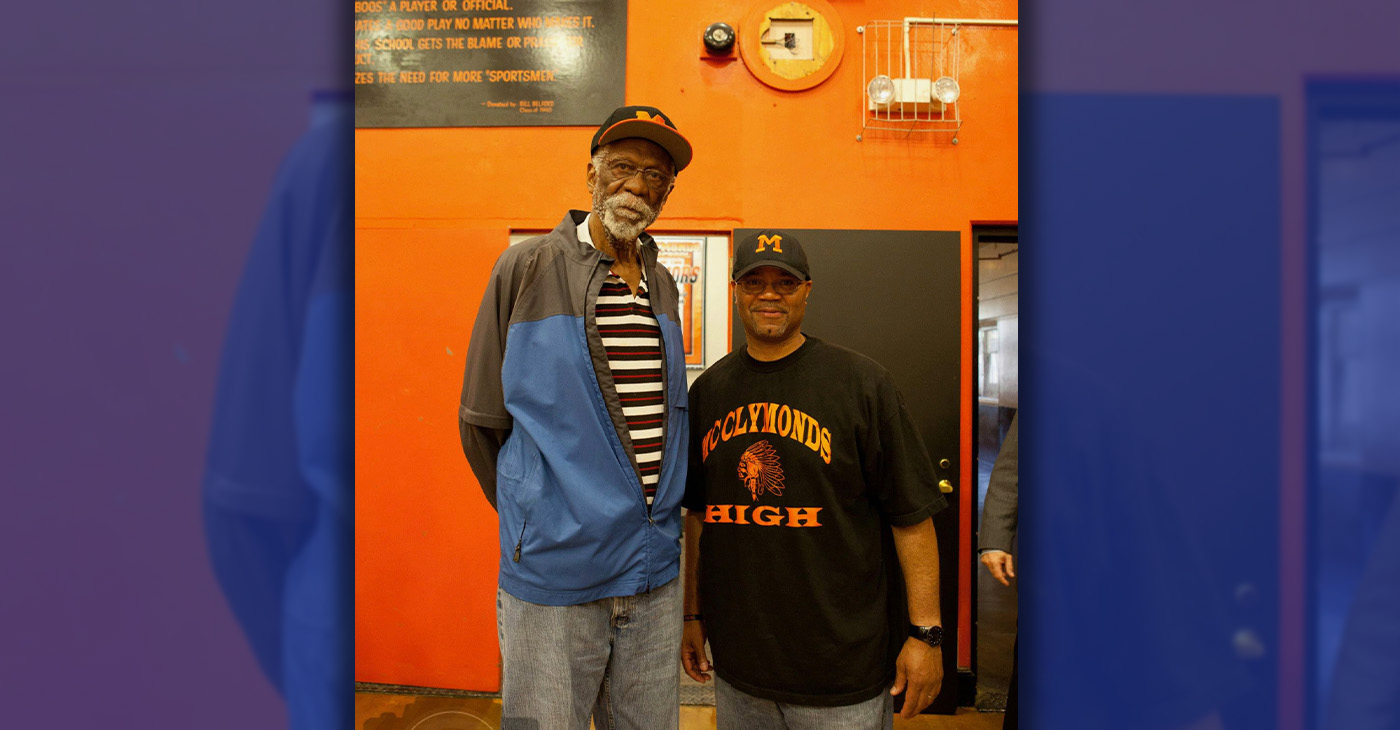
By Ken Epstein
West Oakland’s McClymonds High School, “the School of Champions,” this week named the school’s gymnasium in honor of one of its most famous graduates, basketball legend Bill Russell (class of ’52).
William “Bill” Felton Russell was born on Feb. 12, 1934, and died on July 31, 2022. He achieved fame as a U.S. professional basketball player who played center for the Boston Celtics of the National Basketball Association (NBA) from 1956 to 1969. He was the centerpiece of the Celtics dynasty that won 11 NBA championships during his 13-year career.
Russell is widely known as one of the greatest basketball players of all time. In 2011, he received the Presidential Medal of Freedom, the country’s highest civil honor, from President Barack Obama for Russell’s contributions to basketball and the Civil Rights Movement.
The McClymonds’ naming ceremony was held on Wednesday, the same day as Russell’s birthday. Oakland leader Bill Patterson, a longtime friend of Russell’s, was scheduled to cut the ribbon at the reopening of the gym, which had been closed for several months for renovation. Russell’s daughter Karen was scheduled to attend the ribbon cutting.
Russell’s name and signature are now printed on the gymnasium floor.
Patterson was working at DeFremery Park when he met Russell. “I befriended him as a boy and during his years at University of San Francisco” said Patterson. “We stayed friends for the rest of his life.”
Said McClymonds Principal Darielle Davis, herself a McClymonds graduate, “We are excited to honor Bill Russell for his sports accolades and because he broke color barriers. He is part of our legacy, and legacy is really important at McClymonds.”
Brian McGhee, community schools manager at McClymonds and former football player at UC Berkeley, said that Russell meant a lot to him and others at the school. “He was a beacon of light and hope for West Oakland,” he said. “He did a lot for sports and for civil rights.”
Starting in 2018, Ben “Coach” Tapscott worked with Patterson and other McClymonds grads, community members, and former coaches to encourage the Oakland Board of Education to endorse the naming of the school gym, which finally happened recently.
“We worked hard to make this happen,” said Tapscott. “He’s an important part of McClymond’s history, along with a lot of other famous graduates,” he said.
Activism
OPINION: Politics, Football and Identity in Trump’s America
If you haven’t noticed, all Americans are engaged in an even bigger game that means so much more than the Super Bowl. Our democracy is falling apart.
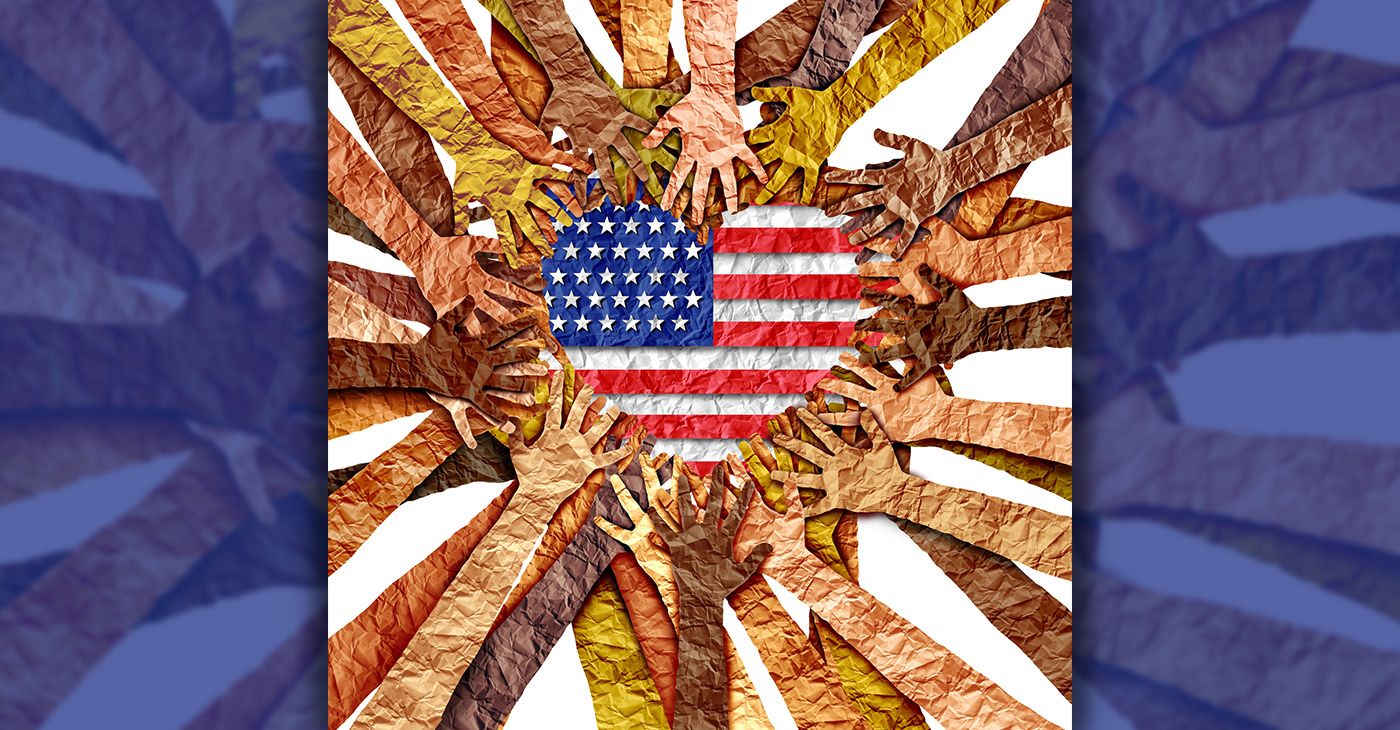
By Emil Guillermo
Two Filipino American stories made headlines recently.
First, Nikko Remigio, the Filipino and African American kick returner for the Kansas City Chiefs, did not win Super Bowl LIX.
The other, Alameda’s Rob Bonta said no to running for governor. I don’t blame him. It’s not like a mass of people wanted him to run.
But I did.
Whenever there is a Filipino American in a place you don’t expect, I’m rooting for that person.
As California’s Attorney General, Bonta is probably the most active defender among Blue States pushing back against Trump’s Extreme-Right agenda.
I’d like to Bonta run for California’s top job, but he’s better off waiting in line. The Democrats need a spot for Kamala Harris, and Bonta not running obliges the hierarchy.
History can wait. Bonta’s just 52.
Harris has held off speculation of her next move, saying she just moved back to the state. But it seems governor is the path for her.
For now, Bonta needs to continue taking the fight to Trump in the courts.
Football and Identity Politics
My dad, whose birthday would have been Super Bowl weekend, came to the US in 1928 as a colonized Filipino, an “American National,” where he couldn’t be a citizen, vote, own property or even marry the person he wanted.
Not if they were White.
Still, he believed in America. He never gave up.
Sort of like Nikko Remigio.
My dad would have loved Nikko.
If you haven’t noticed, all Americans are engaged in an even bigger game that means so much more than the Super Bowl. Our democracy is falling apart.
You want to get passionate about Eagles and Chiefs?
Let’s be passionate about our Founding Fathers, too.
Nikko didn’t change the game. He touched it three times and provided more yards than all of KC’s running backs.
That’s all I needed to see.
He’s our Filipino guy.
Detractors may call it “identity politics.”
People don’t seem to understand the fight for visibility. To be recognized. To be seen. It’s all wrapped up in the big idea of Civil Rights.
I was nowhere near as good as Nikko when I played. But when you are blessed to play football, you play your hardest.
For me, that was when I was 12 and 13 playing Pop Warner football in San Francisco. I was MVP for my team as a running back.
But I was ashamed of my dad. He wasn’t like the other dads. And I remember going to the team banquet to retrieve my trophy alone.
I didn’t realize it probably meant more to him than I thought.
I wish I had shared my MVP moment with him like Nikko shared his joy with his dad, Mark, born in Seattle to two Filipino immigrants, and his mom, whose mixture of Black and White made Nikko the picture of diversity.
Filipino American and Black and White at the Super Bowl.
But don’t forget, there is one game bigger.
The Super Bowl for Democracy. We’re battling for it every day Trump pushes a cockamamie idea that shakes the foundation of our Democracy.
About the Author
Emil Guillermo is an award-winning journalist and commentator. Watch his micro-talk show “Emil Amok’s Takeout/What Does an Asian American Think?” on www.YouTube.com/emilamok1 Or join him on http://www.patreon.com/emilamok
Bay Area
Tina Thompson: Champion, Legend, and Pioneer of Women’s Basketball
Known for her signature red lipstick, Thompson displayed confidence and style on the court, becoming an icon both for her gameplay and her individuality. Her ability to score from anywhere on the floor, combined with her defensive prowess, made her one of the league’s most formidable players.
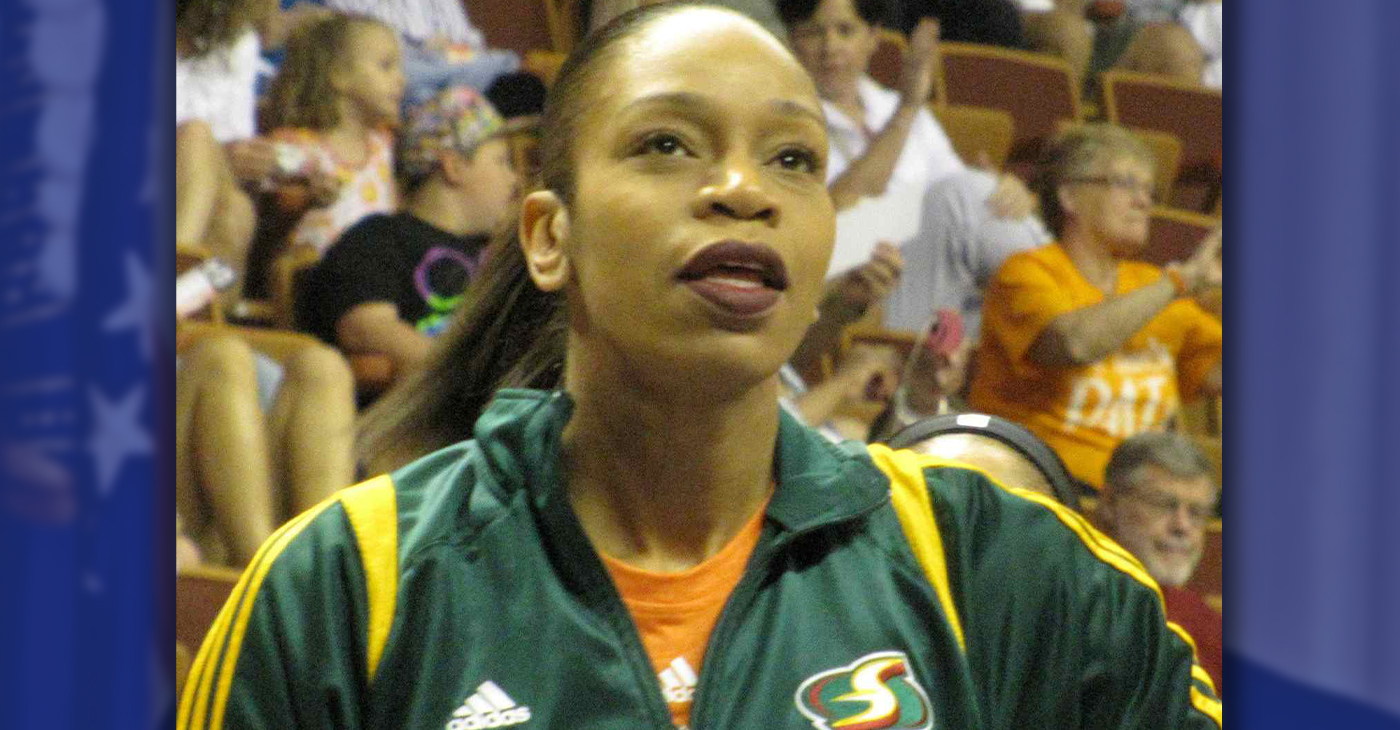
By Tamara Shiloh
The establishment of the Women’s National Basketball Association (WNBA) in 1996 was a turning point for women’s sports, creating a professional platform for female basketball players to showcase their skills at the highest level. Among the trailblazers who helped launch the league, Tina Thompson stands out as the first African American woman drafted into the WNBA.
Tina Thompson was born on February 10, 1975, in Los Angeles, California. Raised in a basketball-loving household, she quickly developed a passion for the game. Thompson improved her skills on the playgrounds of South Central Los Angeles, often playing against boys, which toughened her game and fueled her competitive edge.
She attended the University of Southern California (USC), where she became a standout player for the Trojans. Known for her versatility, scoring ability, and relentless work ethic, she earned All-Pac-10 honors multiple times and cemented her reputation as one of the top collegiate players in the nation.
When the WNBA held its first-ever draft on April 28, 1997, Tina Thompson made history as the league’s first African American player to be drafted. Selected as the first overall pick by the Houston Comets, she joined a team that would go on to dominate the early years of the WNBA.
Tina’s selection was a historic moment, symbolizing the league’s commitment to showcasing diverse talent. As a Black woman in a pioneering role, Thompson carried the hopes of aspiring African American female athletes who dreamed of playing professional basketball.
Tina wasted no time making an impact in the WNBA. As a key member of the Houston Comets alongside legends Cynthia Cooper and Sheryl Swoopes, she helped lead the team to an unprecedented four consecutive championships from 1997 to 2000. The Comets’ dynasty became the gold standard for excellence in the league’s early years.
Known for her signature red lipstick, Thompson displayed confidence and style on the court, becoming an icon both for her gameplay and her individuality. Her ability to score from anywhere on the floor, combined with her defensive prowess, made her one of the league’s most formidable players.
Over a career spanning 17 seasons, Tina established herself as one of the WNBA’s all-time greats. She retired as the league’s leading scorer, a record she held until it was broken by Diana Taurasi. She was a nine-time WNBA All-Star and was named to multiple All-WNBA teams, cementing her status as one of the sport’s legends.
In 2018, Thompson’s contributions to basketball were recognized with her induction into the Naismith Memorial Basketball Hall of Fame. The honor underscored her influence not just as a player, but as a trailblazer for African American women in sports.
After retiring from professional basketball, she transitioned into coaching, using her experience and knowledge to mentor young athletes. She has served as a head coach at the collegiate level, inspiring the next generation of players to pursue excellence both on and off the court.
As a role model and advocate, Thompson has consistently emphasized the importance of education, empowerment, and self-belief. Her story resonates with countless young women who see in her the embodiment of perseverance and success.
Tina Thompson is presently in her third season as an assistant coach at the University of Texas at Austin.
-

 #NNPA BlackPress3 weeks ago
#NNPA BlackPress3 weeks agoTarget Takes a Hit: $12.4 Billion Wiped Out as Boycotts Grow
-

 Activism2 weeks ago
Activism2 weeks agoUndocumented Workers Are Struggling to Feed Themselves. Slashed Budgets and New Immigration Policies Bring Fresh Challenges
-

 #NNPA BlackPress3 weeks ago
#NNPA BlackPress3 weeks agoBREAKING Groundbreaking Singer Angie Stone Dies in Car Accident at 63
-

 #NNPA BlackPress3 weeks ago
#NNPA BlackPress3 weeks agoApple Shareholders Reject Effort to Dismantle DEI Initiatives, Approve $500 Billion U.S. Investment Plan
-

 #NNPA BlackPress3 weeks ago
#NNPA BlackPress3 weeks agoNAACP Legend and Freedom Fighter Hazel Dukes Passes
-

 #NNPA BlackPress3 weeks ago
#NNPA BlackPress3 weeks agoSeniors Beware: O’Malley Says Trump-Musk Cuts Will Cripple Social Security
-
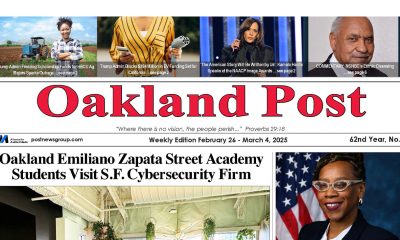
 Activism3 weeks ago
Activism3 weeks agoOakland Post: Week of February 26 – March 4, 2025
-
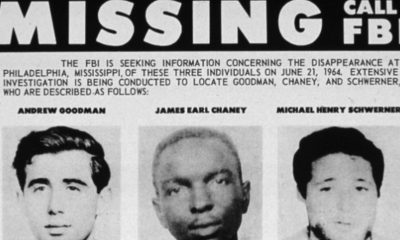
 #NNPA BlackPress3 weeks ago
#NNPA BlackPress3 weeks agoNNPA Launches ‘Missing & Black 2025’ Campaign to Spotlight Disparities in Media Coverage of Missing Black Individuals




